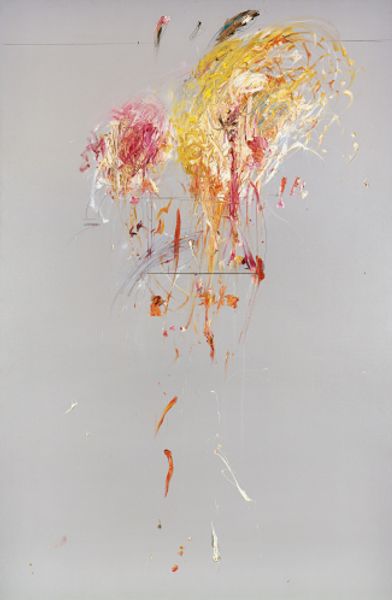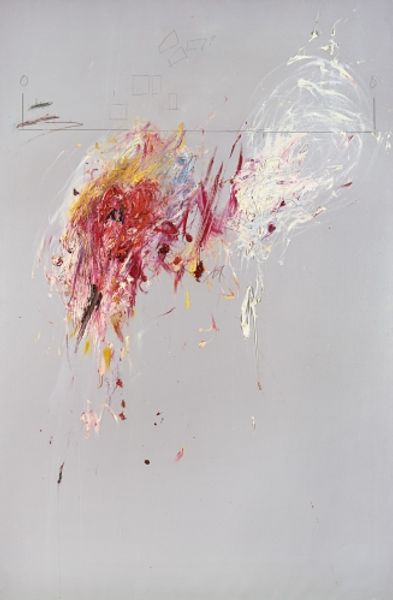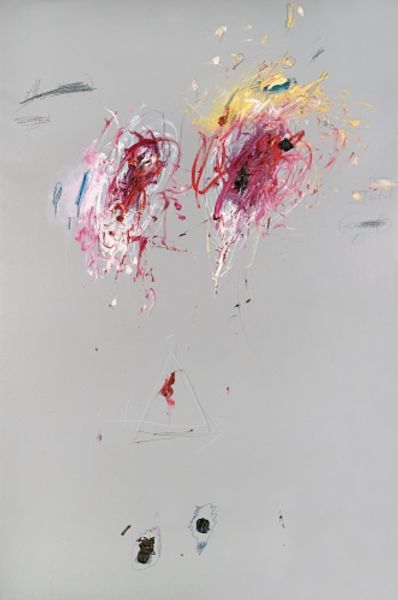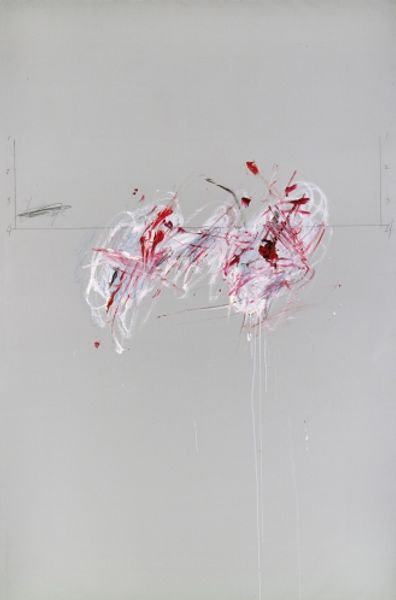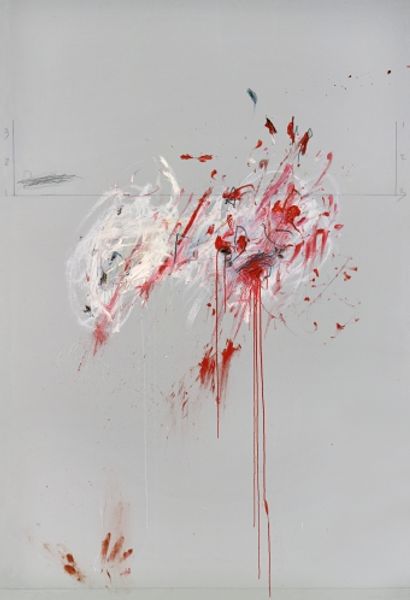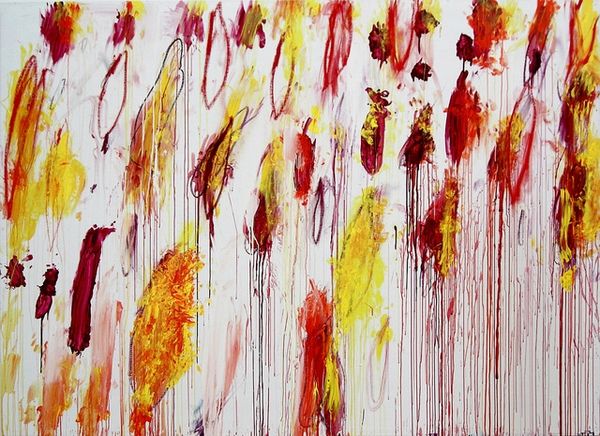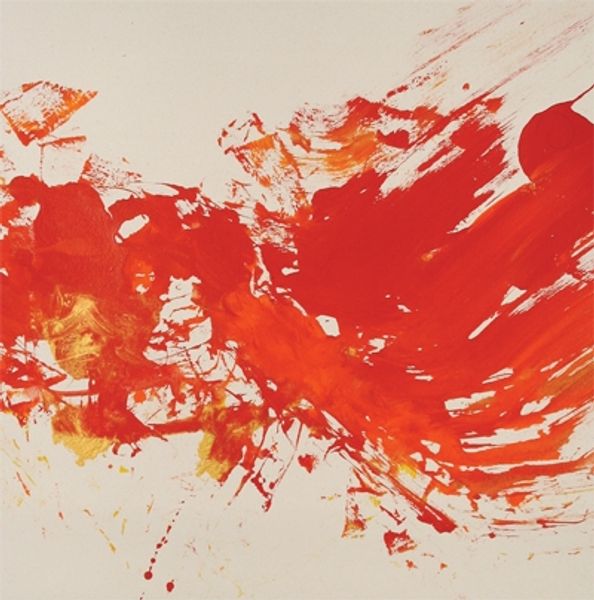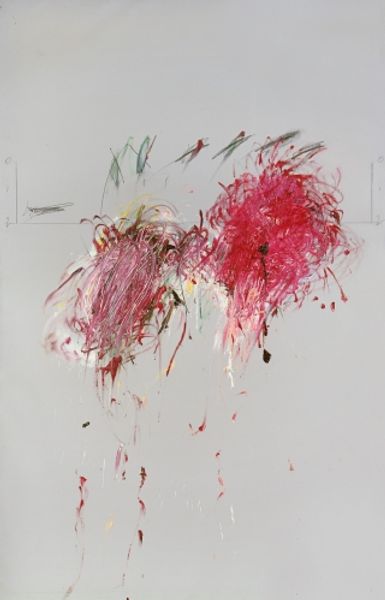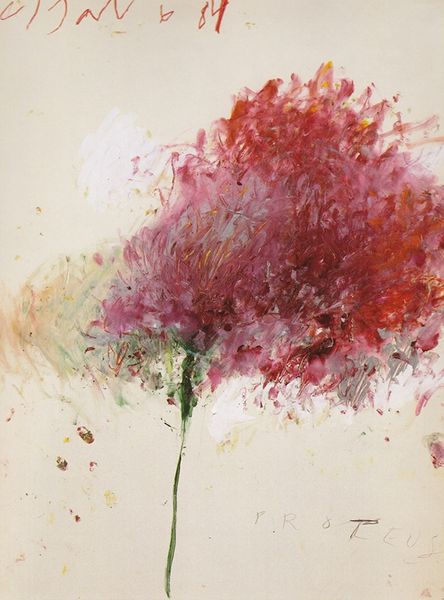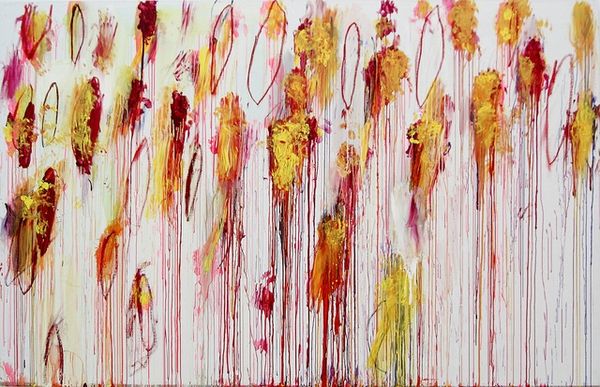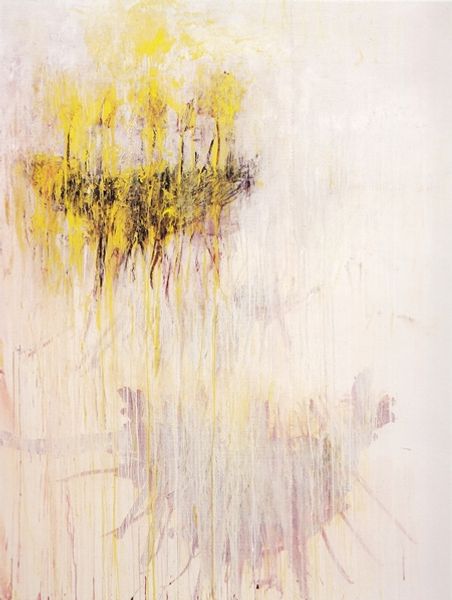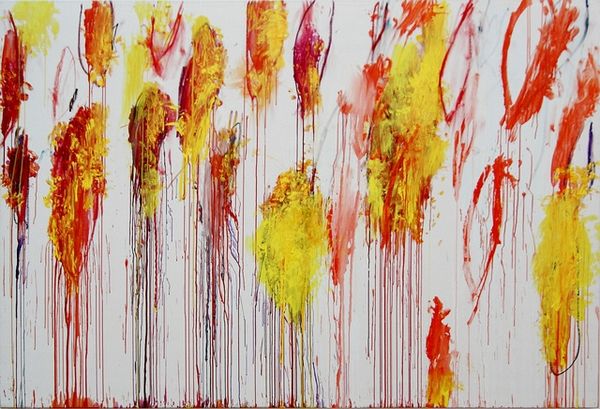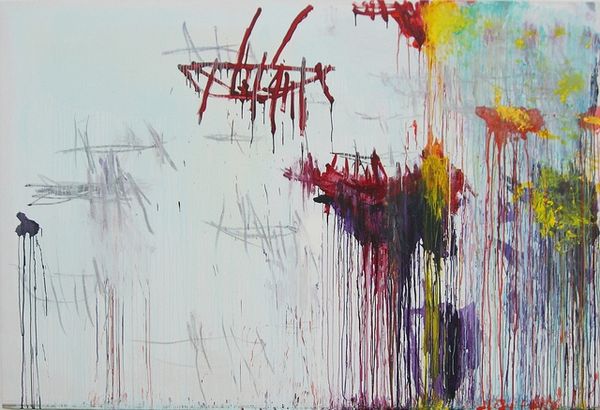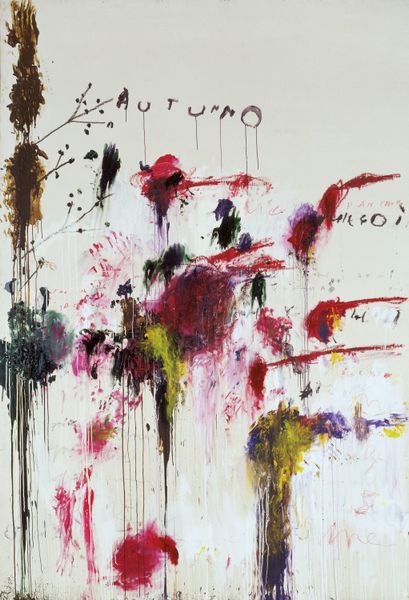
painting, oil-paint
#
abstract-expressionism
#
abstract expressionism
#
abstract painting
#
painting
#
oil-paint
#
form
#
black-mountain-college
#
abstraction
#
line
#
modernism
Copyright: Cy Twombly,Fair Use
Curator: Well, doesn’t that just feel like a scream? I’m instantly transported somewhere both chaotic and vulnerable. Editor: You’ve captured something essential there. What we’re looking at is Cy Twombly's "Nine Discourses on Commodus, Part VIII," created in 1963 using oil paint. Now, before we delve deeper into feeling, I’d like to propose some historical grounding to prevent pure speculation: Who was Commodus, and why did Twombly choose this name? Curator: Historical grounding, yes, necessary for some perhaps! Commodus, the Roman emperor… a pretty awful one, as I recall. Talk about excess and self-indulgence – qualities perhaps reflected in the unrestrained energy of the piece? Is it about power? Its unraveling? The bloody consequences? I see something falling apart. Editor: Exactly! Commodus’ reign was marked by decline, excess, and ultimately, assassination. The historical context provides a lens to consider how power and decay, authority and chaos, might be visual themes at play. Twombly was clearly making a statement on modern parallels between then and now. Curator: I get a distinct feeling it’s as much about *form* as about content. See how those strokes seem almost violently applied, and yet they create such a lyrical cascade of red? I like how they smear and drip; for me that’s an expression of the materiality of paint itself. Editor: Agreed, his technique is so potent. He destabilizes classical notions of representation by engaging the viewer’s senses rather than offering something to identify, critique, or simply “enjoy”. His style almost dares the audience to bring their expectations of Roman history into contact with contemporary anxiety, a statement I find ever present still. Curator: A beautiful tension, wouldn’t you say? Something both repulsive and bewitching. That pull is why it feels so relevant. And, in truth, maybe why I appreciate Abstract Expressionism generally. The lack of easy answers or directives! Editor: Precisely! Twombly holds up the fragments and the ruptures, allowing them to signify complex intersections of the past, present, and perhaps our fractured futures. Curator: I must say I never considered my work in a broader sociological, cultural, or political contexts... that certainly broadened my view. Editor: And that is how Art history becomes useful, allowing it to move across disciplinary perspectives. Thank you!
Comments
No comments
Be the first to comment and join the conversation on the ultimate creative platform.
